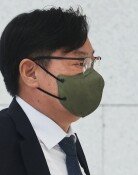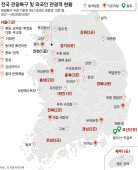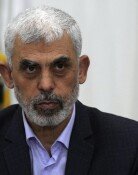Limited financial access for lower-income families
Limited financial access for lower-income families
Posted December. 29, 2022 07:41,
Updated December. 29, 2022 07:41
Lending channels for lower-income families and financially vulnerable households are increasingly becoming scarce. Most savings banks no longer accept government-guaranteed “sunshine loans” for lower-income, low-credit families, and suspended loans via loan comparison platforms. The limit for credit card loans, which have been used as means for emergency funds, is being reduced amid stronger evaluation standards. Financial burdens are increasing for lower-income households, but financial support is becoming more limited.
Savings banks that deal with Sunshine Funds say that reduced lending results from more robust soundness management. In addition, lending businesses are tightening their lending criteria out of profitability concerns due to rising interest rates nearing 8%. The number one lending business said it would no longer accept any loans as of yesterday due to growing financial burdens. With mounting financing costs from higher base rates, the increasingly smaller gap between the market interest rate and the legal highest interest rate (20%) contributes to tighter lending standards at non-monetary institutions.
Lower-income families running out of emergency funds are at their wits’ end. Many families are concerned about their livelihood with higher inflation and higher interest rates. The number of filings for personal bankruptcy is growing, and 370 thousand heads of households are handling second jobs to support their families, the highest figure on record. Many are canceling life insurance, or housing deposit accounts for the same purpose. According to industry experts, the canceled amount of annual cancelled insurance deposits is expected to exceed 3 trillion won for the first time. This means people are forced to retreat to the safety deposits they have saved for the future.
Financially vulnerable families have nowhere to turn to except illegal private money loans. Online money brokerage sites are filled with inquiries asking for small emergency funds. Those forced to resort to private money loans are forced to pay an annual interest rate of more than 3,000%. Lower-income families on the brink of financial poverty risk being submerged in debt. We must enforce tighter regulations, monitoring, and penalties to prevent illegal private money lending.
Most people looking for emergency funds are self-employed people suffering from short-term business disruptions due to the recession. We need to expand financial support so they can ride out the tide until the economy recovers. Increasing the interest rate of Sunshine Loans and reinforcing government-backed financial loans may be a solution. Discussions on introducing the ‘emergency loan for livelihood needs,’ currently under review by the Financial Services Committee, should be accelerated. Adjusting the legal highest interest rate by the base rate should also be considered.
Headline News
- N. Korea redefines S. Korea as ‘hostile state’ in revised constitution
- Samsung develops graphic DRAM with industry-leading capacity and speed
- Three questions allegedly leaked via text message during Yonsei Univ. essay test
- China to inject 340 trillion won in loans to support real estate sector
- Dodgers beat Mets to take 2-1 lead in NLCS







